Description
Amy Grant – Unguarded
Label: A&M Records
Catalog#: 368 298-1
Format: Vinyl, LP, Album + Printed inner sleeve GEMA
Country: Germany
Released: 1985
Genre: Rock, Soft Rock
Tracklist
A1 Love Of Another Kind 3:20
A2 Find A Way 3:25
A3 Everwhere I Go 4:09
A4 I Love You 4:23
A5 Stepping In Your Shoes 4:33
B1 Fight 4:42
B2 Wise Up 3:53
B3 Who To Listen To 4:21
B4 Sharayah 4:51
B5 The Prodigal 5:08
Executive Producer – Dan Harrell , Gary Chapman , Michael Blanton
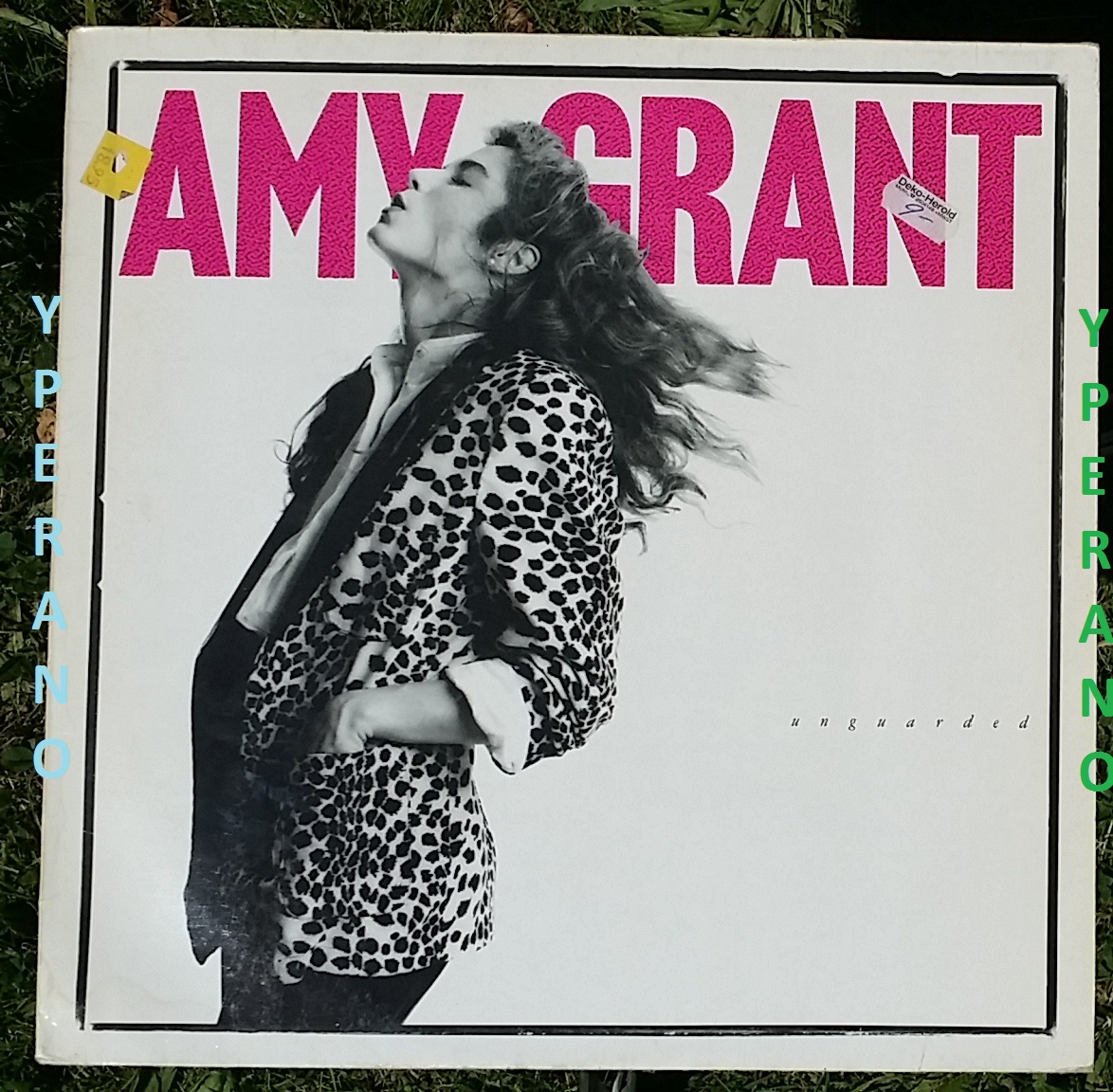
———————————————————–
Unguarded is the ninth album by Christian music singer Amy Grant, released in 1985.
When Unguarded was released in 1985, Amy Grant was probably the most popular star in Contemporary Christian music, recording songs with religious lyrics in the pop/rock style of the day. With this album, however, the religious content of the lyrics was scaled back as compared with her two previous regular studio albums, Age to Age and Straight Ahead. Despite this, the albums lead-off single, “Find a Way,” was a number one hit on the Christian radio charts. Four other singles from the album were also Top Ten Christian radio hits.
The aggressive mainstream style of the songs on Unguarded, combined with a heavy promotional campaign on the part of the albums distributor in secular outlets, A&M Records, three of its singles reached the mainstream charts. “Find A Way” was a Top Ten hit on the Adult Contemporary chart and peaked at #29 on the Billboard Hot 100, while “Everywhere I Go” was a Top Thirty AC single and “Wise Up” was a minor charting single on the Hot 100. Unguarded would be certified gold in September 1985, and platinum in June 1986.
Trivia
This was the final album to be recorded at Caribou Ranch, which was owned by former Chicago producer/manager James William Guercio before the infamous March 1985 fire that destroyed the studios control room.
Personnel:
Amy Grant: Vocals.
Michael W. Smith: Synthesizer, Moog Synthesizer, Memory Moog.
Robbie Buchanan: Synthesizer, Piano, Arranger, Sound Effects, Drum Programming, Synthesizer Bass, DX-7, Jupiter 8.
Shane Keister: Synthesizer, Piano, Moog Synthesizer, Fairlight, Fender Rhodes, Explosions, Synthesizer Programming.
Dann Huff: Guitars.
Jon Goin: Guitars.
Michael Landau: Guitars.
Paul Jackson Jr.: Guitars.
Mike Brignardello: Bass.
Paul Leim: Drums, Drum Programming, Drum Overdubs, Linn.
Lenny Castro: Percussion.
Larry Williams: Synthesizer, Saxophone.
Kathy Burdick: Screams.
Bill Champlin: Background Vocals.
Gary Chapman: Background Vocals.
Chris Eaton: Background Vocals.
Kim Fleming: Background Vocals.
Tommy Funderburk: Background Vocals.
Steve George: Background Vocals.
Chris Harris: Background Vocals, screams.
Tom Kelly: Background Vocals.
Donna McElroy: Background Vocals.
Richard Page: Background Vocals.
Gary Pigg: Background Vocals, screams.
The album track “I Love You” is Amy Grants first secular love song from her own pen. It was dedicated to her then-husband Gary Chapman. According to one verse of the song:
You were pretty crazy, back when we fell in love
Wanting to be everything, that I would be proud of
Hours we spent dreaming, how we’d beat the odds
Now the truth has hit is, life is very hard
Life can be so hard
In the video for “Wise Up”, some of Tommy Funderburks backing vocals are convincingly lip-synced by a black woman.
Charts:
Album – Billboard (America)
Year Chart Position
1985 The Billboard 200 35
1985 Top Contemporary Christian 1
Singles – Billboard (America)
Year Single Chart Position
1985 “Find A Way” Adult Contemporary 7
1985 “Find A Way” Christian Singles 1
1985 “Find A Way” The Billboard Hot 100 29
1985 “Everywhere I Go” Adult Contemporary 28
1985 “Everywhere I Go” Christian Singles 4
1985 “Wise Up” The Billboard Hot 100 66
1985 “Wise Up” Adult Contemporary 34
1985 “Wise Up” Christian Singles 2
1985 “Sharayah” Christian Singles 2
Amy Grant had just earned the title ‘Queen of Christian Pop’ in her native USA when she changed direction and started recording secular albums. She wanted to become as successful in the mainstream as she had been in Christian circles. Her 1985 album ‘Unguarded’ was an album not very different from other artists production-wise, but the fact that her lyrics were no longer riddled with references to Jesus, God and the Bible shocked her fanbase.
‘Find a way’ was a single from this album and it became a hit in America. She didn’t cross over to Europe yet (it would take her a few more years to do that), but this single is a promotional copy made in England. Proof that A&M Records were already trying hard to try and make her a star in the UK too.
Amy Grant conquered Christian music. That was just her first act.
Grant will become the first contemporary Christian music star to receive the Kennedy Center Honors. The award caps a traumatic year for the beloved singer.
She doesn’t remember how she fell off her bicycle that day in late July when she was riding with a friend at Nashville’s Percy Warner Park. She was unconscious for about 10 minutes and doesn’t remember her nearly week-long hospital stay, where she was treated for a concussion and a shoulder injury that would eventually require surgery, along with cuts and abrasions. Her doctors said if she hadn’t been wearing a helmet, it could have been much worse.
She’s not exactly sure about her first memory after the accident. She recalls her husband of 20-plus years, country music icon Vince Gill, and their family and friends gathering at her home, but it’s all a blur. Really, her main takeaway is the slowdown that came during her recovery.
Grant hasn’t had much downtime since she was discovered as a teenage singer and released her first album at the age of 16. She went on to sell more than 30 million albums, won Grammy Awards and Gospel Music Association Dove Awards, and became the “queen of Christian pop.” Though she was able to kick off her much-anticipated Christmas concert tour the weekend after Thanksgiving, the Kennedy Center Honors will be her first major event in months.
“It has been the quietest season of my life,” said Grant, 62, the first contemporary Christian artist to be awarded the prize. She’s sitting in an armchair in the front room of her stately yet cozy home, the sun streaming through the windows on an unusually warm November morning with her publicist and management associate nearby. Occasionally, a cocker spaniel mix named Okie wanders into the room to urgently sniff everyone.
“There are times in our lives where we can just be so busy that you’re present, but you’re also ticking off that list of things that need to be done. Or somebody sits down for a conversation and you’re giving 100 percent attention, but you also can’t make the next thing on the calendar completely go away,” Grant said. “That was the biggest adjustment.”
Fall tour dates were canceled and doctors advised her to limit her screen time. She suffered some memory loss, and although she’s perfectly fine to recall many things, she started a journal called “Writing to Remember.”
“I was just trying to remember people’s, like my extended family, names,” she said with a laugh. “Every conversation would start with ‘Are they dead or alive?’ ” (Gill, always one for jokes, likes to say that he now has her believing he produced the Beatles, won Olympic gold medals and he was right about the curtains in the living room.)
It’s hard to snap out of work mode when you have been working your whole life — and when you’re the kind of person whom friends describe as someone who always puts others first, inspired by her Nashville-based great-grandparents who put an emphasis on philanthropy. But since the accident, Grant has found herself appreciating her days and the people in them in a new way.
“The timing of this … it’s really given me the opportunity to look at the majority of my life,” Grant said. “And kind of, I don’t know — just wrap my arms around the whole thing. I mean, that’s a gift for anybody.”
That Grant could go through a traumatic event, find the silver lining and even declare a serious accident to be a gift is not exactly surprising to those who know her. She’s the kind of person who radiates positivity and joy. Ask anyone to describe how they feel about her, and, well …
“Amy! Oh my goodness, it’s hard to describe Amy,” said gospel star CeCe Winans, who used to perform Grant’s songs with her brother, BeBe, when they were starting out as a duo. “Amy has got to be one of the nicest people I’ve ever met before in my whole life. And she’s consistent with it — she’s unassuming, humble, and she honors people. Every time I’m with her, I just want to be a better person.”
“She might be the sweetest soul I’ve ever known,” said singer-songwriter Michael W. Smith, her longtime friend who is joining her on the Christmas tour.
“When I worked with Amy Grant, I recognized a kindred spirit — someone who embodies harmony, hope and optimism in her life and in her work,” former Kennedy Center honoree Carole King, who collaborated with Grant on the 2013 track “Our Time Is Now,” said in an email. “In addition to her accomplishments as a songwriter and artist, I admire Amy’s poise, grace and generosity. I’m proud to call her a friend.”
There are so many different entry points that listeners might have with Grant. Maybe you had the five-time platinum “Heart in Motion” album on repeat in the early ’90s, or your parents play her Christmas records every year, or you saw “El Shaddai” in hymn books in church. Her lyrics span the spectrum from giddy love songs to serious ballads confronting difficult issues, but if one theme remains constant in her work it’s a reminder that even in dark times there are better days ahead.
“From the outside it might have seemed like, ‘Oh, it’s a coffee shop next to a church and people are coming and singing songs about Jesus. What in the world is boundary-pressing with that?’ But the fact is, a lot of these people singing songs about Jesus still had very crazy lives,” Grant said. “It was a beautiful environment to be exposed to when I was that young.”
Around that time, Brown Bannister — Grant’s youth-group leader and eventual producer — helped her record a cassette tape of songs for her great-grandmother’s birthday. He was impressed by what he heard and, on a whim, made an extra copy and gave it to Chris Christian, a producer who worked at Myrrh Records, a faith-based label. The label head immediately agreed to sign her.
From what Bannister remembers, 15-year-old Grant’s reaction that she had an offer from a record label was “Oh, cool!” Grant is often self-deprecating when it comes to her singing ability (“I knew so many people who were just technically so much more talented than I was”) and heaps praise on the team that guided her career from its earliest days.
Despite her humble nature, however, “she wasn’t just a wallflower that’s going to do what everybody tells her to do,” said Thompson, the historian and host of the podcast “True Tunes.” “And fortunately, some smart people around her let her take charge.”
Like any female artist in the spotlight, Grant faced enormous scrutiny. In many ways, it was even more intense for her, particularly when she shifted from being strictly a Christian musician to one with crossover appeal in pop music.
“I always felt like I was trying to walk on one leg when I only sang gospel songs, when I played the part of the good girl, when I only sang my acceptable thoughts,” Grant said in an interview in the late 1980s, later adding, “I don’t know how to live without my beliefs, but I didn’t want my life to be just church songs.”
“The directions she chose to take with her music, growing evangelically and then branching out into pop, those are the kind of decisions that [people in the music industry] are generally more hesitant to make,” said John Darnielle, singer of indie rock mainstays the Mountain Goats. His own music couldn’t sound more different from Grant’s, but he’s an outspoken fan who was deeply moved by her 2002 album “Legacy … Hymns & Faith.” He says her music helped crystallize an important idea for him: “You don’t have to just sing about Jesus — Jesus isn’t mad at you if you sing about other stuff.”
As Grant emerged into the mainstream, some critics could not wrap their minds around her wardrobe. A 1985 article in The Washington Post described her image as “confusingly sexy.” There was a strange amount of fixation on her leopard-print jacket and leather pants she wore in concert. Bannister even recalls “the three-button controversy,” when she wore a shirt with the three top buttons opened on the cover of her sophomore album. (Grant, for what it’s worth, said she barely puts any thought into her clothes and is amused they get so much attention.)
“She was such a pioneer,” said Nashville journalist Deborah Evans Price, who has covered Grant’s career for 30 years and credits her with being ahead of the curve both sonically and lyrically. “The perception back then was that Christian music artists couldn’t be ‘cool.’ … But everything about her: her look, her style, her rapport with people, anyone, any audience. All the gifts she had combined to break down a lot of walls.”
As each album became more successful than the last (1982’s “Age to Age” was the first Christian album to go platinum, 1985’s “Unguarded” was a massive hit, 1991’s “Heart in Motion” exploded into the mainstream with the inescapable single “Baby, Baby”), a narrative began to form within the Christian music community: Grant was “controversial.”
When she started releasing pop songs, some fans thought she was abandoning them. When she tossed her hair and danced like a rock singer onstage in concerts, she was behaving like Madonna (not exactly a favorite within religious circles). When she was featured with a male actor in the “Baby, Baby” music video, some said it was a sin because the man wasn’t her husband.
“I never was curious about negative input,” Grant said. “There’s only so much energy in a day, and if you spend your energy chasing down all the negativity that’s aimed toward you, well, then all that energy is gone.”
The most difficult blowback came in 1999, when she divorced husband and close musical collaborator Gary Chapman, the father of her three oldest children. Grant was candid that she had challenges in her marriage, but after she married Gill the following year, a crush of coverage followed. She and Gill, who was also previously married and had a daughter, sat for interviews where they repeatedly explained they had been friends for years and reiterated nothing inappropriate ever happened while they were married to other people.
Many evangelical fans were still furious and judgmental, and some radio stations stopped playing her music. But Grant and Gill weathered the storm. “The beauty is [the criticism] doesn’t seem to faze her and sure as hell doesn’t change her,” Gill said.
Two decades later, the couple, who have another daughter together, are considered Nashville royalty — particularly for their famous “Christmas at the Ryman” concerts, which resume in December. Though the duo share billing as headliners, Gill jokes that his role will be “the village idiot” while the audience is really there for Grant.


















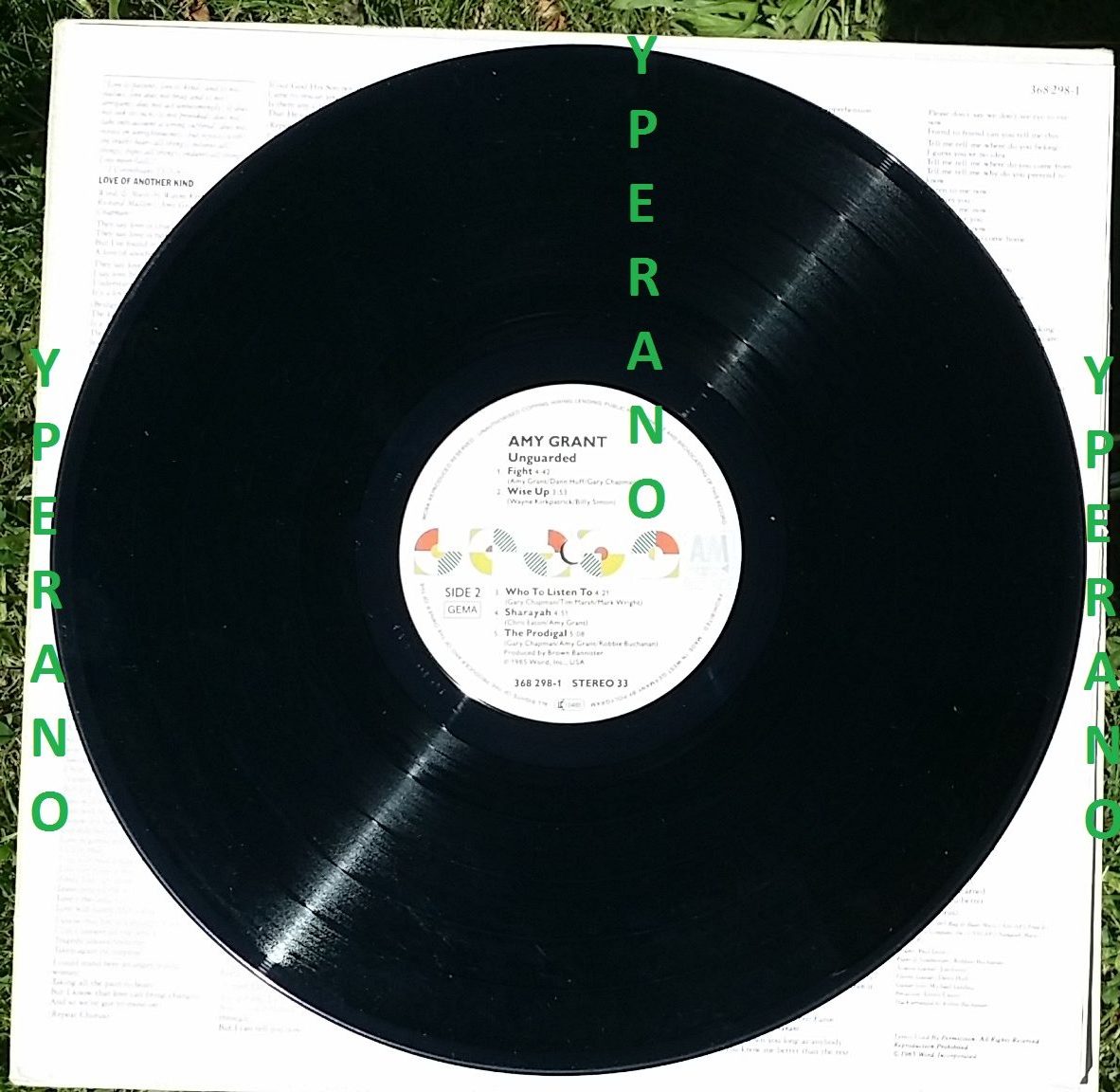





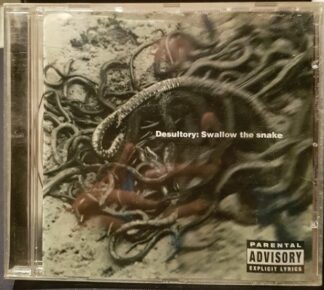
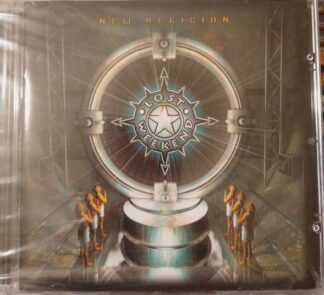
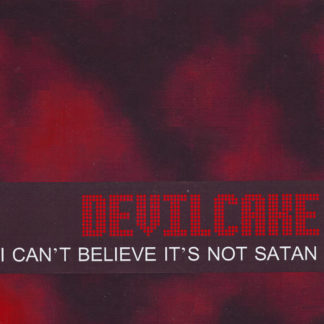



Reviews
There are no reviews yet.